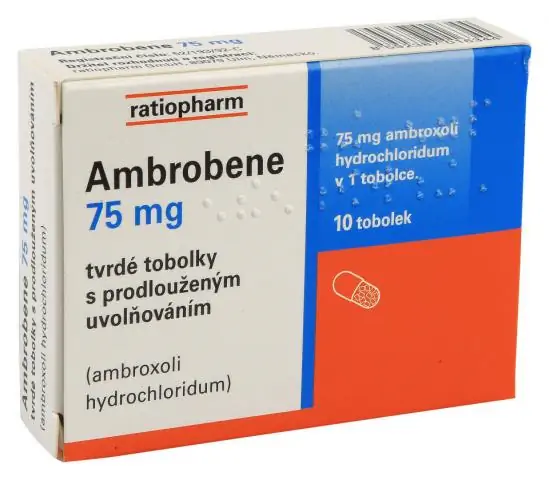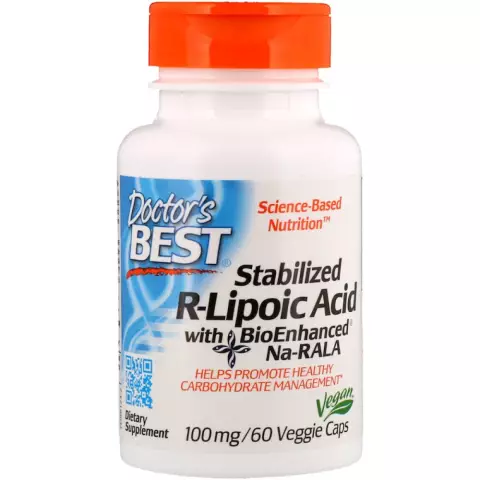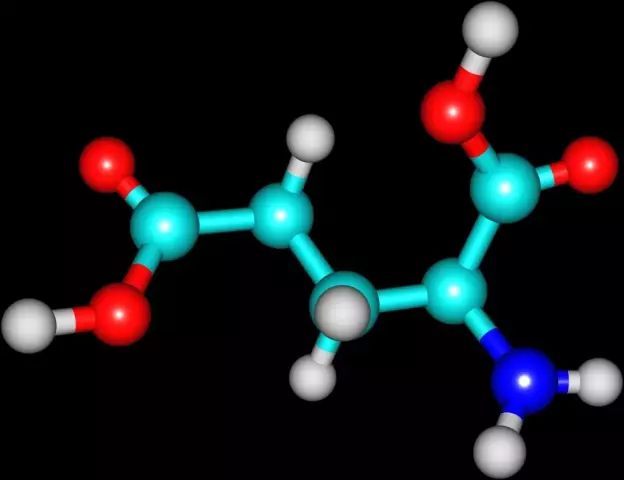- Author Rachel Wainwright wainwright@abchealthonline.com.
- Public 2023-12-15 07:39.
- Last modified 2025-11-02 20:14.
Boric acid
Boric acid: instructions for use and reviews
- 1. Release form and composition
- 2. Pharmacological properties
- 3. Indications for use
- 4. Contraindications
- 5. Method of application and dosage
- 6. Side effects
- 7. Overdose
- 8. Special instructions
- 9. Application during pregnancy and lactation
- 10. Use in childhood
- 11. In case of impaired renal function
- 12. Drug interactions
- 13. Analogs
- 14. Terms and conditions of storage
- 15. Terms of dispensing from pharmacies
- 16. Reviews
- 17. Price in pharmacies
Latin name: Boric acid
ATX code: D08AD
Active ingredient: boric acid (Boric acid)
Producer: Pharmaceutical factory, St. Petersburg (Russia); Armavir Interdistrict Pharmacy Base (Russia); Ivanovskaya pharmaceutical factory (Russia); Iodine Technologies and Marketing LLC (Russia); PFC CJSC Obnovlenie (Russia); JSC Tatkhimfarmpreparaty (Russia); JSC Sintez (Russia), RUE Belmedpreparaty (Republic of Belarus), etc.
Description and photo update: 2019-20-08
Prices in pharmacies: from 10 rubles.
Buy

Boric acid is an antiseptic drug used for external and local use.
Release form and composition
- Solution for topical application of alcohol 3% (in bottles of 40 ml and dropper bottles of 10 ml, 15 ml, 25 ml);
- Powder for external use (in cans of 25 g).
The active substance of the drug is boric acid. The solution contains 70% ethyl alcohol as an auxiliary component.
Pharmacological properties
Pharmacodynamics
Boric acid is an antiseptic with insignificant fungistatic and bacteriostatic activity. The drug is also used as an anti-lice and contraceptive (in combination with oxyquinoline sulfate).
Boric acid promotes coagulation of proteins of microbial cells and disrupts the permeability of the cell membrane, which leads to cell death or inhibition of the growth and reproduction of harmful microorganisms.
Boric acid powder in 5% aqueous dilution inhibits the processes of phagocytosis, and in a concentration of 2-4% retards the development and growth of bacteria. It has a weak irritant effect on granulation tissues and mucous membranes. When absorbed, it can cause systemic toxic reactions.
Pharmacokinetics
The drug penetrates well through the skin and mucous membranes. It is excreted at a low rate and is able to accumulate in organs and tissues. 50% of the dose is excreted in the urine within 12 hours after application, the rest of the drug is excreted within 5-7 days.
Indications for use
The solution is used for otitis media (in the chronic and acute phase) without damaging the tympanic membrane.
The powder is used as an antiseptic in dermatology, ENT practice, ophthalmology, as well as for contraception (in combination with sulfate).
Contraindications
According to the instructions, Boric acid is contraindicated in the following cases:
- Hypersensitivity of the patient to the drug;
- Perforation of the tympanic membrane;
- Renal dysfunction;
- Chronic renal failure
- Pregnancy and lactation;
- Childhood.
Instructions for the use of Boric acid: method and dosage
Boric acid solution is intended for topical use. When treating otitis media, it is recommended to apply 3-5 drops of the drug on the turunda 2-3 times a day and inject it into the external auditory canal. The duration of therapy is no more than 5 days.
The powder is intended for external use. The dosage and duration of treatment are determined individually and depend on the indication that served as the basis for prescribing the drug.
Side effects
Allergic reactions are possible in patients with individual hypersensitivity to boric acid.
Systemic side effects can manifest as itching, burning, irritation of sensitive skin at the site of application of an aqueous or alcohol solution, as well as hyperemia of the skin of the external auditory canal.
In case of aggravation of any of the indicated side effects or the appearance of other negative effects not specified in the instructions, you must immediately seek the advice of a doctor.
Overdose
If boric acid is accidentally taken orally, symptoms of acute intoxication may appear, which include hyperpyrexia, nausea, vomiting, gastralgia, diarrhea, erythematous rashes, accompanied by subsequent desquamation (may be complicated by death within 5-7 days), stimulation or depression of the central nervous system, dysfunction of the cardiovascular system, dysfunction of the liver (including jaundice) and kidneys, shock, including fatal.
In case of an overdose, symptomatic therapy is prescribed, and, if necessary, hemodialysis or peritoneal dialysis and blood transfusion are performed.
special instructions
The drug must be used strictly in accordance with the indications.
The powder is not recommended to be applied to large areas of the body and to be used externally on areas covered with hair, in acute inflammatory skin diseases.
Avoid getting the solution on mucous membranes.
Application during pregnancy and lactation
The drug must not be used during pregnancy and lactation (breastfeeding). The solution is contraindicated to process the mammary glands before feeding the baby.
Pediatric use
Boric acid powder and solution are not used to treat children and adolescents under 18 years of age.
With impaired renal function
It is not recommended to use the drug in patients with chronic renal failure.
Drug interactions
There is no information on the interaction of boric acid with other drugs when used externally.
Analogs
Boric acid analogs are: Boric ointment, Novocindol, Lavasept, Drapolen, Prontosan, Miramistin, Yodditserin, Dezmistin, Aquazan, Betadin, etc.
Terms and conditions of storage
The shelf life of the powder is 5 years, the solution is 3 years. Keep out of the reach of children and protected from light at a temperature of 15-25 ° C.
Terms of dispensing from pharmacies
Available without a prescription.
Reviews of Boric acid
More often, there are positive reviews about Boric acid. Women who use the drug for cosmetic purposes believe that its use gives better results in the treatment of skin rashes than salicylic acid. With regular use of the solution, the skin becomes smoother and more even after 5-30 days of treatment (depending on the initial state).
Boric acid is also considered indispensable in the treatment of ear diseases; it effectively warms the ear, relieves pain and quickly relieves otitis media.
Boric acid price in pharmacies
On average, the price of Boric acid in the form of an alcoholic solution for topical application of 3% is from 7 to 52 rubles (for a 25 ml bottle). Powder for external use can be purchased for about 31-61 rubles (for a package of 10 g).
Boric acid: prices in online pharmacies
|
Drug name Price Pharmacy |
|
Boric acid 3% solution for topical application (alcoholic) 25 ml 1 pc. RUB 10 Buy |
|
Boric acid 3% solution for external use alcohol 25 ml 1 pc. 12 RUB Buy |
|
Boric acid 3% solution for external use alcohol 25 ml 1 pc. RUB 15 Buy |
|
Boric acid powder for external use 10 g 1 pc. RUB 17 Buy |
|
Boric acid 3% solution for external use alcohol 10 ml 1 pc. RUB 20 Buy |
|
Boric acid powder 10 g 1 pc. 22 RUB Buy |
|
Boric acid powder for external use 20 g 1 pc. RUB 23 Buy |
|
Boric acid 3% solution for topical application (alcoholic) 25 ml 1 pc. 28 RUB Buy |
|
Boric acid cleaning agent for optics care powder 10g RUB 29 Buy |
|
Boric acid powder for external use 10 g 1 pc. RUB 29 Buy |
|
Boric acid 3% solution for topical application (alcoholic) 25 ml 1 pc. RUB 29 Buy |
|
Borca Boric acid powder for external use 10 g 1 pc. RUB 45 Buy |
|
Boric acid 3% solution for topical application (alcoholic) 25 ml 1 pc. RUB 56 Buy |
|
Boric acid solution for narcotics approx. alcohol 3% fl. 25ml No. 1 RUB 80 Buy |
|
Boric acid is a pore disinfectant. 10 g RUB 81 Buy |
| See all offers from pharmacies |

Anna Kozlova Medical journalist About the author
Education: Rostov State Medical University, specialty "General Medicine".
Information about the drug is generalized, provided for informational purposes only and does not replace the official instructions. Self-medication is hazardous to health!






